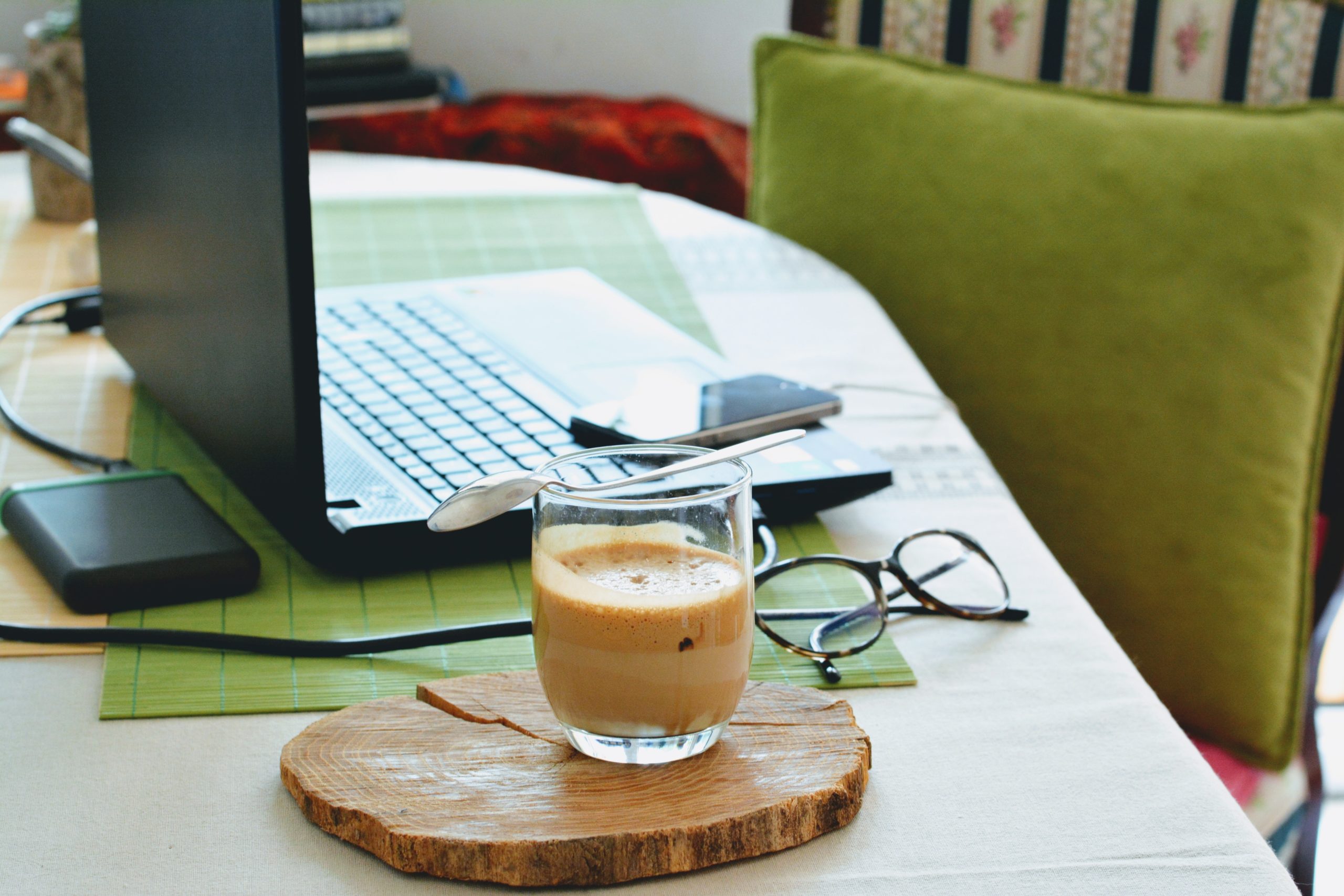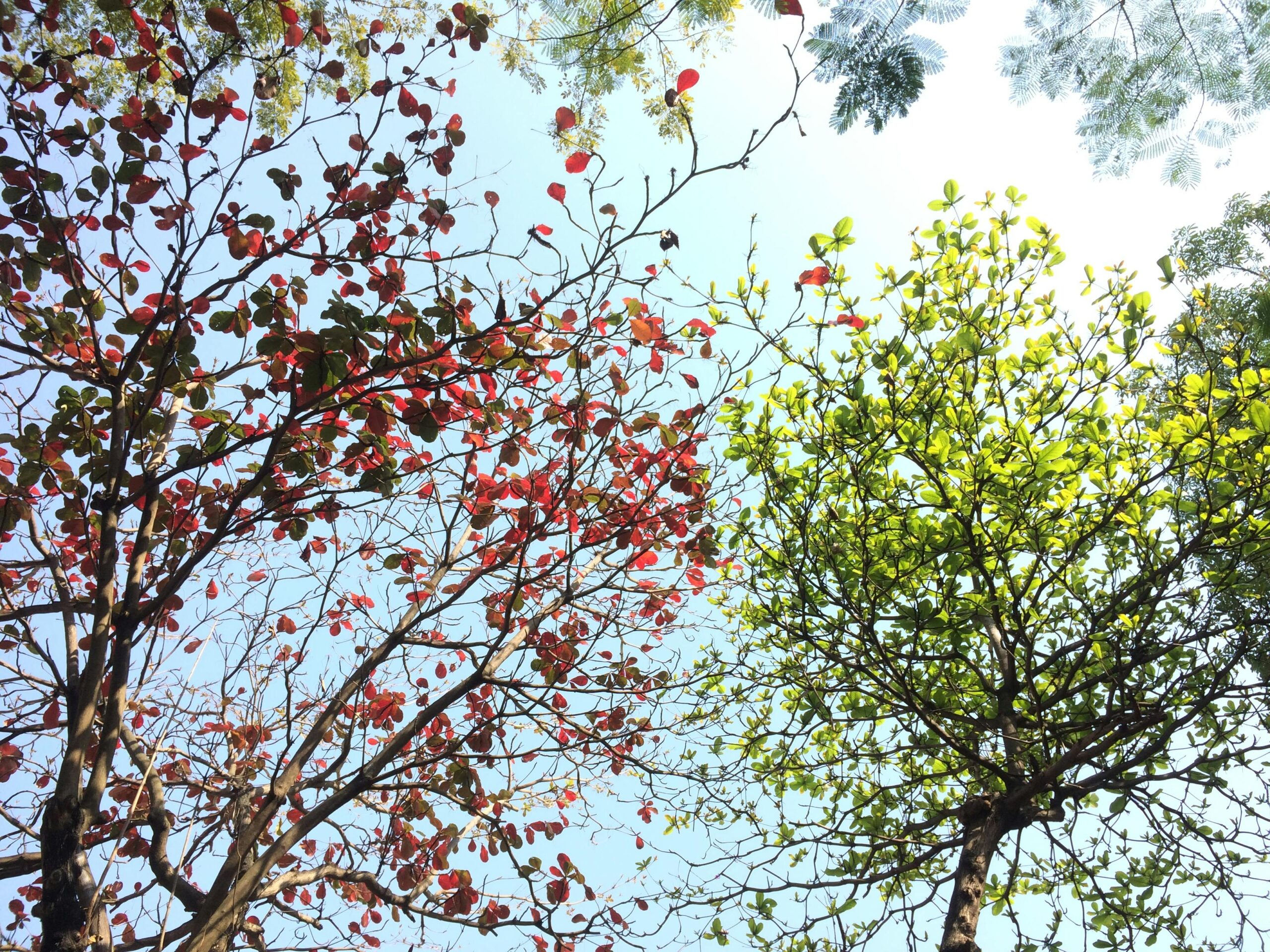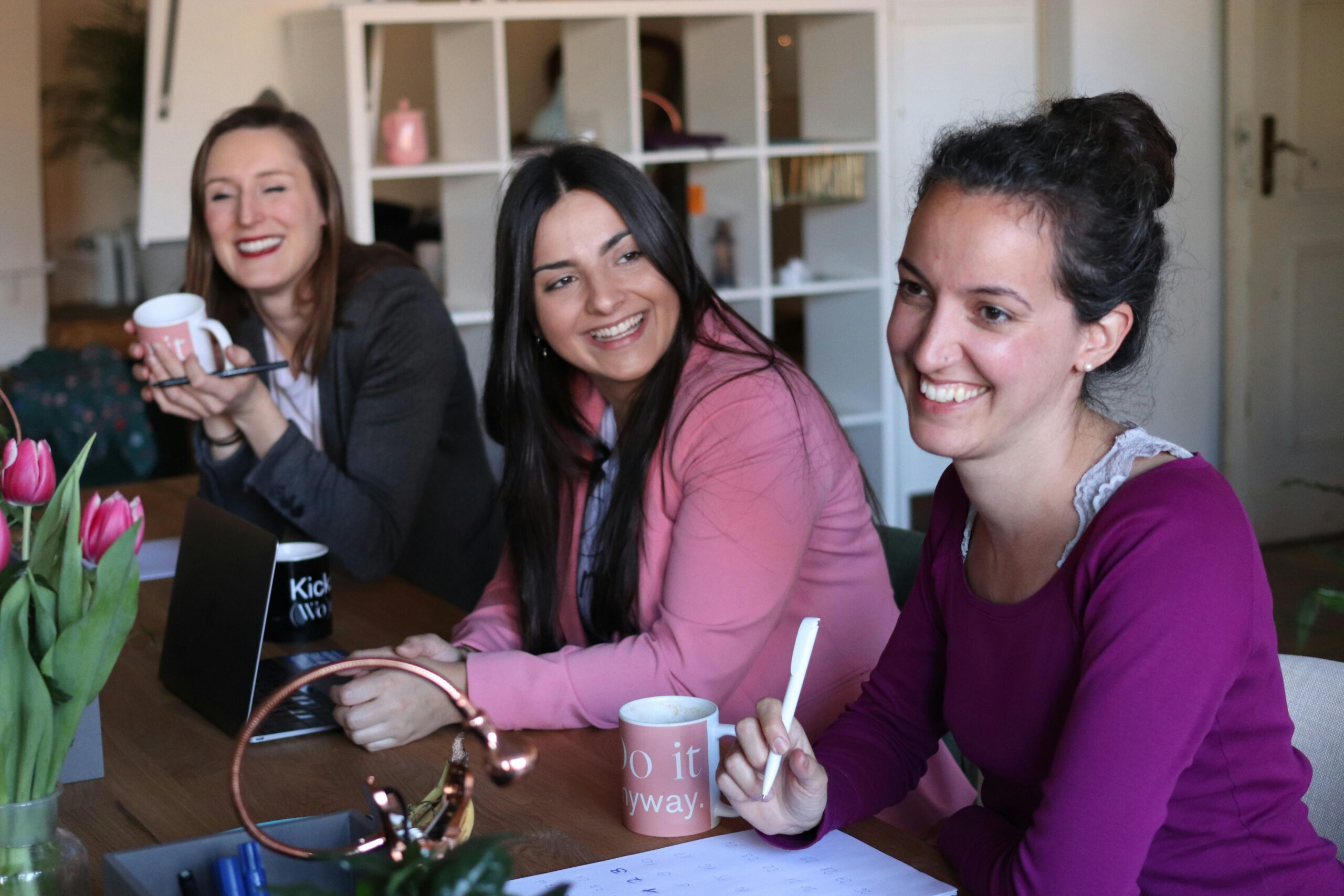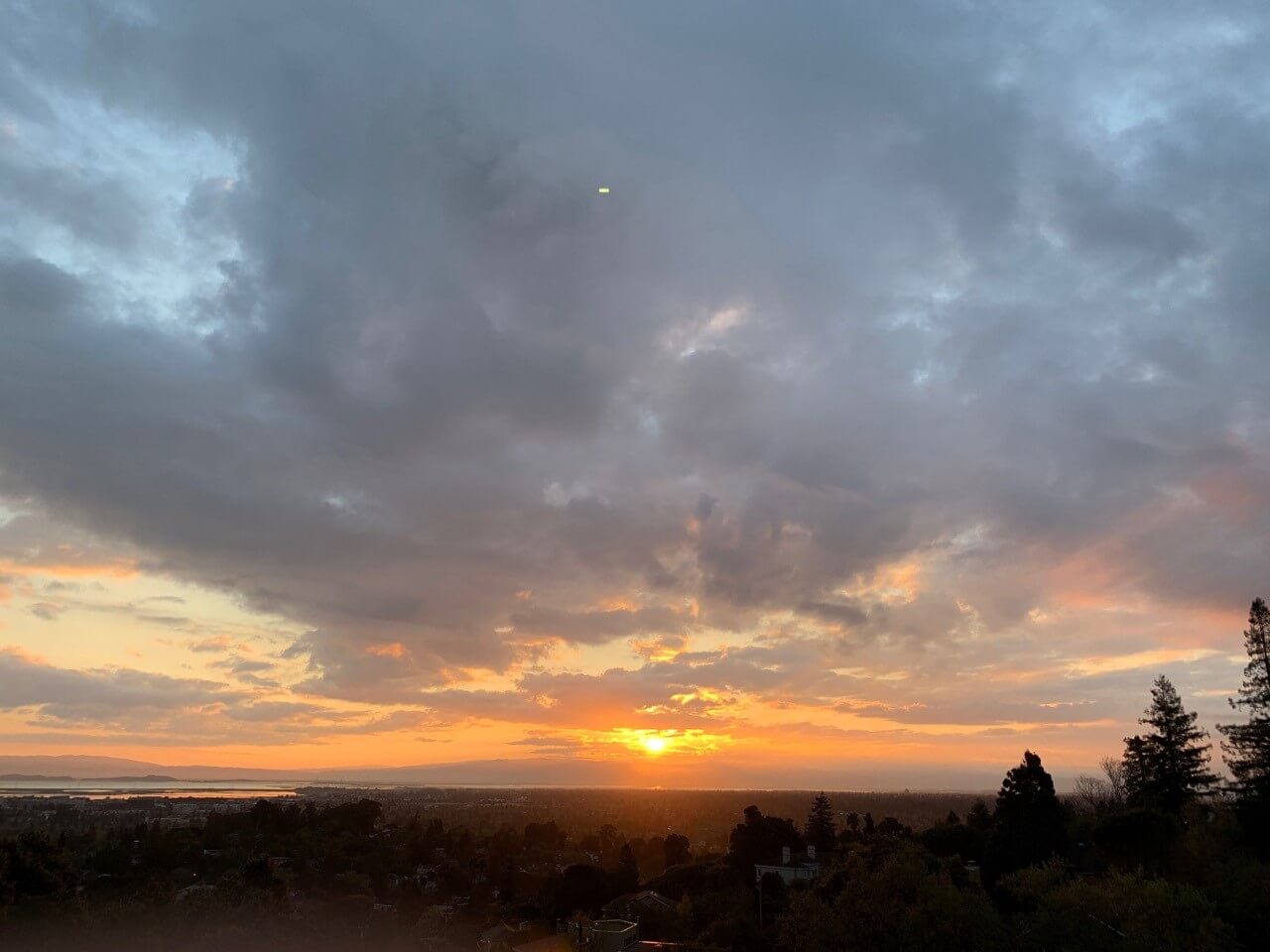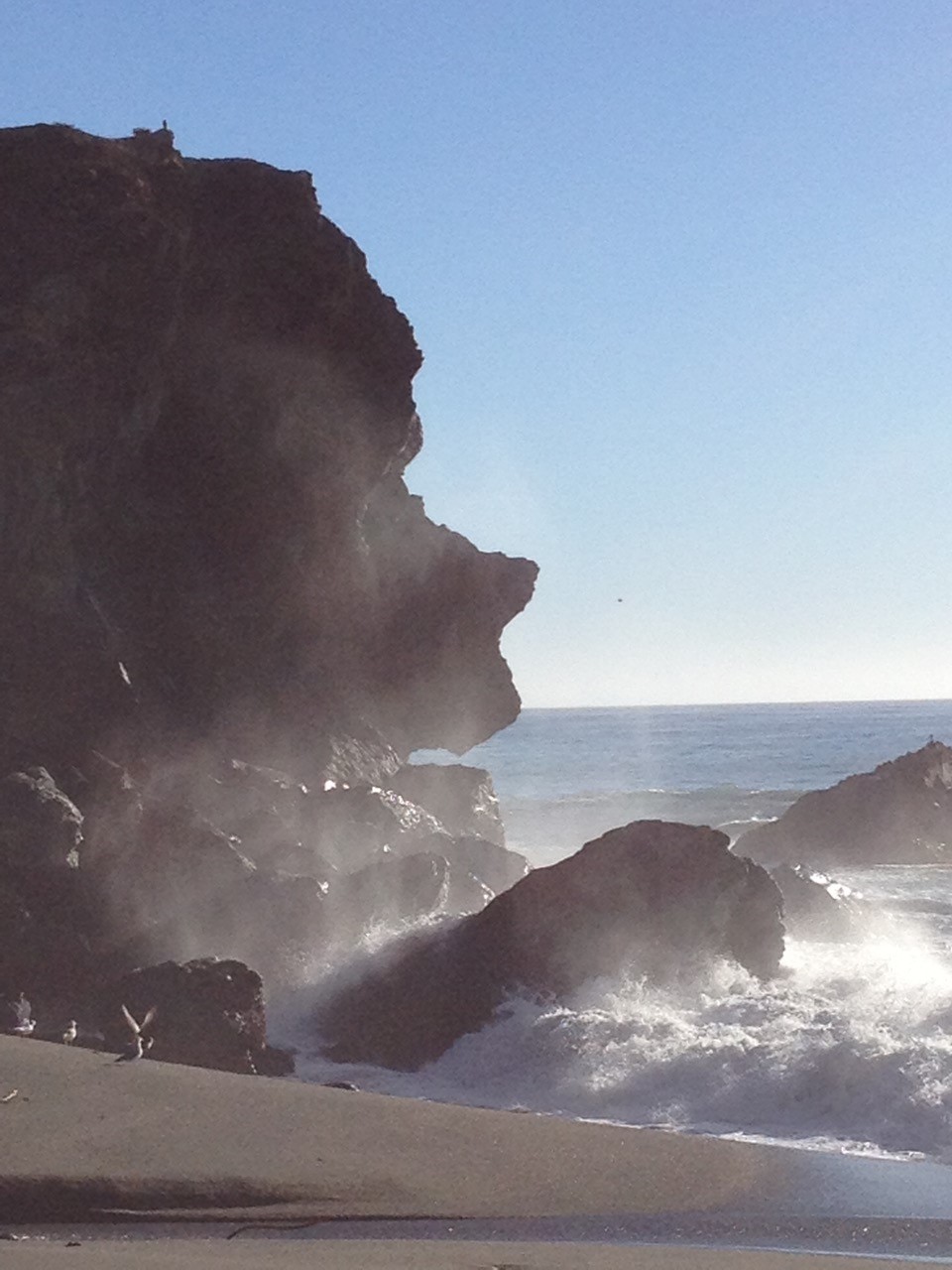Leading through uncertainty: Bending towards wholeness
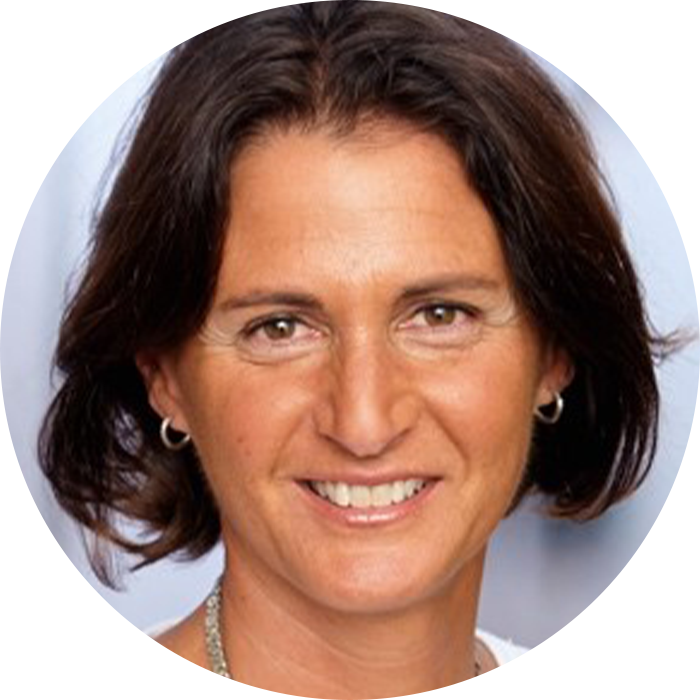
Beep-beep-beep! Beep-beep-beep! The sound of the kitchen smoke alarm pierces through the house. I sit bolt upright in my bed. It’s 12.15 am. The lights are on in the hallway. I hear mumbling, “It’s bad, it’s really bad.” I venture into the kitchen and find one of the kids standing in front of the oven. Smoke is pouring out, toxic fumes billowing through the air and out of the window. I carefully open the oven door. Through the smoke I can see a half-baked pizza on a melting chopping board, a growing pool of molten plastic on the oven floor. I cough as the stench fills my lungs. I shut the door quickly.
California’s shelter-in-place order means our two college kids have returned to complete their semester from home and our high schooler has shifted to distance learning. We’re back to being a full, noisy household. The dining table is a shared office/learning environment during the day, and returns to its usual function in the evening. The fridge is stocked to the brim with food to feed three hungry teenagers, appliances are working overtime, and there’s a stream of family members in and out of the kitchen, all day, seven days a week. Together, we are re-experiencing the good, the bad and the ugly of family life. From lively conversation around the dinner table, to a midnight feast on a melted chopping board – and everything in between.
It’s only 12 months since I was preparing for our second child to head off to college, following in her brother’s footsteps (he’d left the previous year). Our family was dwindling, an empty nest on the horizon. After 20 years of a house bursting with energy, I was dreading the shift to a different kind of reality. I wasn’t sure that I was ready for this new phase and I could see it was going to happen whether I liked it or not. Change is hard; anticipating it is even harder.
But when the day came to drop our daughter at college, I discovered the emotional work of separation had already been done. I felt at peace. I was happy for her and had a sense of ease about letting go, letting her go off to build a future. Our family was transitioning to a new chapter, a new way of being in a relationship, a new way of being – individually and collectively.
My husband and I settled into a newly configured life at home with our youngest son. We enjoyed the quieter house and simpler day-to-day routine. I challenged myself to take up a new hobby – ballroom dancing – to tame the inner gremlin that has always told me I don’t know how to dance. I delighted in the rediscovery of things forgotten and the discovery of things I never knew.
It’s now just six months later, and we have reversed gear. The house is full again. Some of our family dysfunction has returned.The kids have grown up in so many ways, but old behaviors show up in moments of stress. Deep-seated father-son dynamics resurface. There are arguments over nothing. The kitchen is on fire. I fall back into my default role: imperfect mediator. Yet new bonds form. The boys exercise together. Big sister tutors younger brother in trigonometry. Our main outing of the week is to the supermarket. We try out new recipes; cook dinner together. Make banana bread. Dust off the board games.
Martin Luther King Jr once said, “Let us realize the arc of the moral universe is long, but it bends toward justice”. Perhaps it also bends towards wholeness. These past weeks have reminded me that life is not linear; it is complex and unpredictable, full of stops and starts. It is utterly imperfect, and still it moves towards wholeness. Our role is to focus on what we can influence, and nudge things in the right direction.
Coronavirus has brought about a change to our existence that we didn’t anticipate. It arrived suddenly and forced us to adjust in unimaginable ways. Collectively, we’ve had to do an about-turn. It is easy to feel anxious and disempowered when so much is beyond our control. Yet we are more empowered than we sometimes think. Each of us has the chance to make even small changes, so that we emerge from this crisis stronger than before.
Take a moment to consider your sphere of influence. Are there pockets of dissonance, or places where you feel stuck? What might you do to nudge towards wholeness? Are there conversations you’ve been putting off? People you’ve been avoiding? Is it time to re-envision your leadership? Reimagine your future? Pause for a moment to reflect.
I mean really pause.
Beep-beep-beep! Beep-beep-beep! The alarm awakens us and we respond to an urgent family situation. A spontaneous reaction, subconscious and immediate. Comforting in its familiarity. By contrast, our global predicament feels uncertain, alarming and at times painful. It’s hard going through this, not knowing our direction, or even what awaits us on the other side. Yet just as we have shown willing to adapt over the last few weeks, so can we emerge from this crisis with new ways of living and leading. And, most importantly, with a deeper understanding of what it means to inhabit – humanely and sustainably – this place we call home. Our collective future depends on it.
Leaders’ Quest offer a wide range of leadership workshops to help leaders and companies navigate uncertainty. To learn more, get in touch with us at info@leadersquest.org.
This blog is part of a series on leading through uncertainty.
Part I: Leading self
Part II: Making conscious choices
